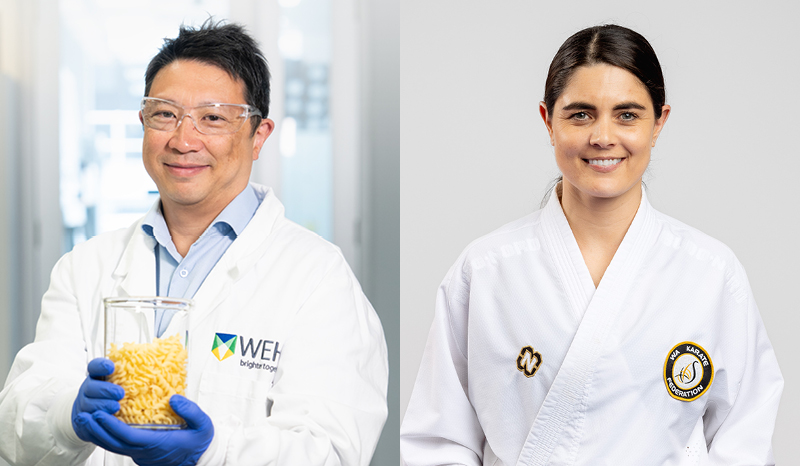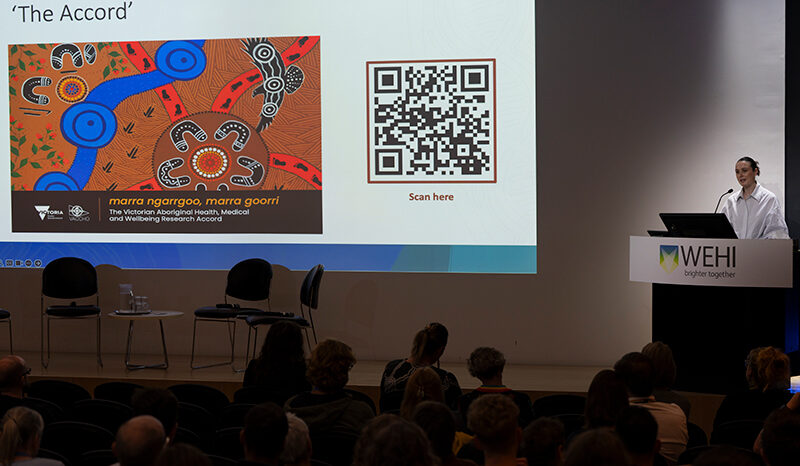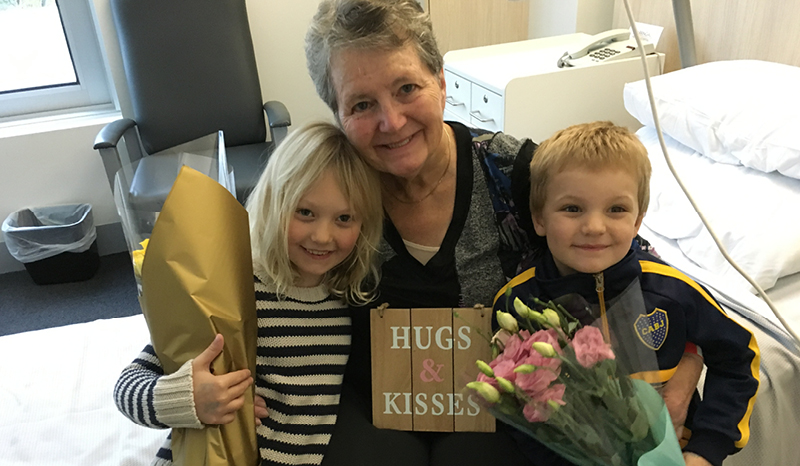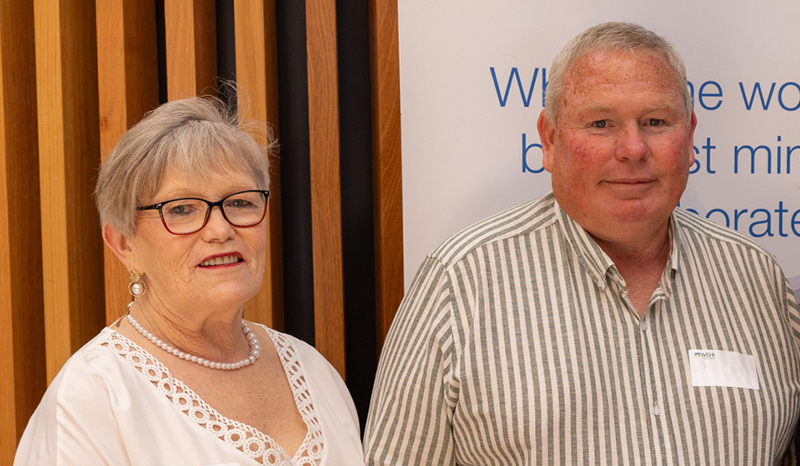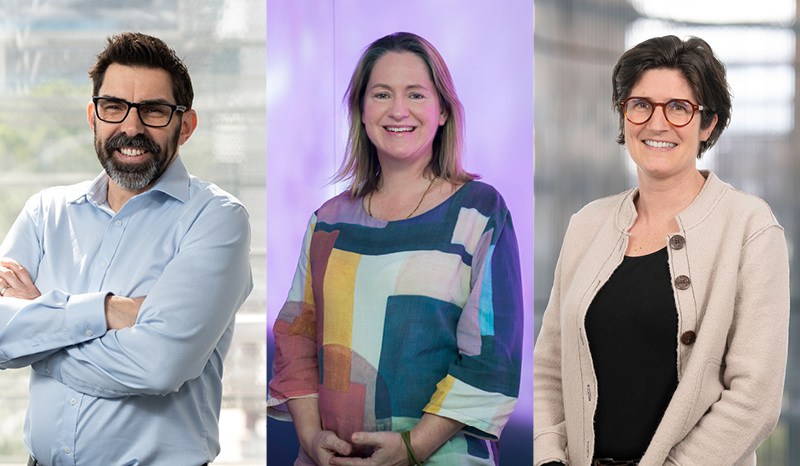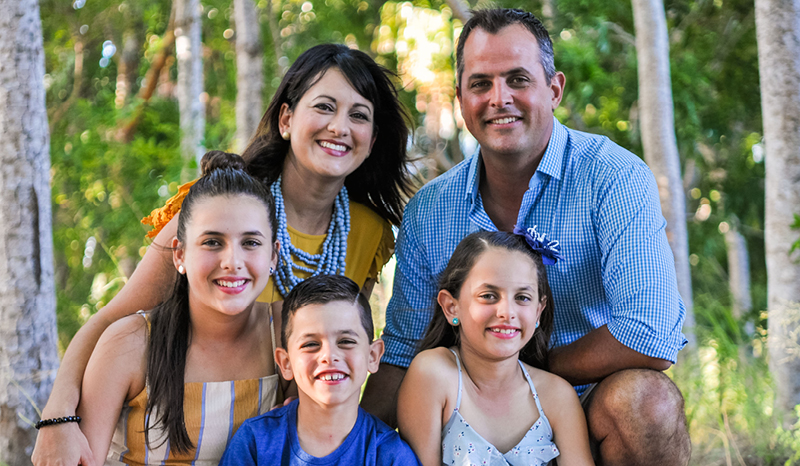Jason:
When reflecting on the importance of our work at WEHI, I often think about Jessica, her husband Mitchell, and their daughter Rubika, whose journey with coeliac disease reminds me why our research matters.
Jessica, a former Australian karate champion, and Mitchell, one of cricket’s most formidable fast bowlers, are the definition of determination. We first crossed paths when, instead of presents for their joint 40th, they asked friends to donate to our coeliac research.
That alone was inspiring. But then Jessica told me Mitchell was literally stepping into the boxing ring to fight for our cause.
It wasn’t just any charity match. Mitchell was up against a fighter nicknamed “The Hulk.” Of course, I was worried. But the image of a father putting on boxing gloves to fight for his daughter’s health – that kind of love and courage – inspires me daily.
Coeliac disease is one of the most common autoimmune illnesses, affecting over 350,000 Australians. Untreated, it can lead to serious complications like liver disease, infertility and even cancers such as lymphoma.
Yet, it doesn’t receive the same level of funding as other major diseases.
That’s why people like Jessica and Mitchell are important. Their efforts have provided crucial funds that have allowed us to undertake a range of new studies.
One of our most exciting breakthroughs is a blood test that could revolutionise how we diagnose coeliac disease. The current process is far from ideal, often requiring weeks of gluten consumption that makes patients sick, while the ‘gold-standard’ gastroscopy with biopsies, is costly and invasive.
Our blood test offers real promise as a simpler alternative. Our studies show it can detect coeliac disease accurately in people already on a gluten-free diet. If we can eventually make this widely available, it would be a game-changer for many families.
We’re also working to improve the lives of people like Rubika who deal with the challenges of coeliac disease daily. We’re investigating treatments that could reduce symptoms and even block the harmful immune effects of gluten entirely. We are learning about what triggers coeliac disease, to find ways to prevent it.
I dream of a future where people with coeliac disease are diagnosed early and easily, and have a range of safe treatment options that are less burdensome and more effective than a lifelong gluten free diet.
And one day, I hope to say to Jessica: “We can now let Rubika safely enjoy gluten in her diet.”
That’s the future we’re fighting for.



